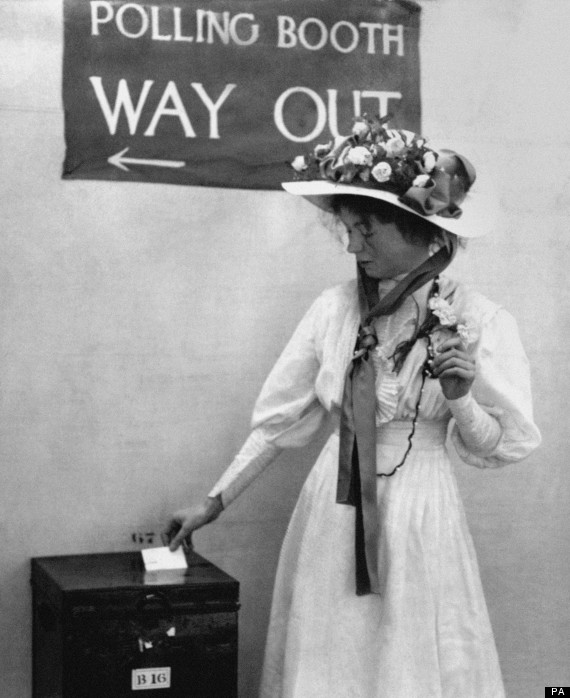Celebrating Women and the Vote
 WASHINGTON, DC –After seventy-two years of campaigning, lobbying, hunger strikes, imprisonments, and appeals to rigid government officials—including President Woodrow Wilson—women—50% of the population–got the right to vote. The American Bar Association called it “the largest expansion of democracy in the history of our country.”
WASHINGTON, DC –After seventy-two years of campaigning, lobbying, hunger strikes, imprisonments, and appeals to rigid government officials—including President Woodrow Wilson—women—50% of the population–got the right to vote. The American Bar Association called it “the largest expansion of democracy in the history of our country.”
On August 26, 1920, Secretary of State, Bainbridge Colby, signed the 19th Amendment to the U.S. Constitution into the law of the land: “The right of citizens of the United States to vote shall not be denied or abridged by the United States or by any State on account of sex.”
According to some historians, the women’s suffrage movement started in 1848 at a meeting attended by 200 suffragists, that was organized by Elizabeth Cady Stanton and Lucretia Mott. It concluded with a resolution: “it is the duty of the women of this country to secure to themselves their sacred right to the elective franchise.”
But, history advocate David Bruce Smith, believes the origins of the crusade might have begun with a letter Abigail Adams wrote to her husband, John, the future second president of the United States:
“In the new Code of Laws which I suppose it will be necessary for you to make I desire you would Remember the Ladies and be more generous and favourable to them than your ancestors. Do not put such unlimited power into the hands of the Husbands. Remember all Men would be tyrants if they could. If perticuliar care and attention is not paid to the Ladies we are determined to foment a Rebelion and will not hold ourselves bound by any Laws in which we have no voice, or Representation.”
 Smith is co-founder of the Grateful American Book Prize with the late Dr. Bruce Cole, a former chairman of the National Endowment for the Humanities. In an interview with the NEH magazine, Humanities, he described the role Mrs. Adams played in her husband’s presidency. Smith also revealed the reason he wrote “Abigail & John,” his book for young readers:
Smith is co-founder of the Grateful American Book Prize with the late Dr. Bruce Cole, a former chairman of the National Endowment for the Humanities. In an interview with the NEH magazine, Humanities, he described the role Mrs. Adams played in her husband’s presidency. Smith also revealed the reason he wrote “Abigail & John,” his book for young readers:
“If you go to Mount Vernon or Montpelier, the signage says, ‘George Washington’s Mount Vernon’ and ‘James Madison’s Montpelier,’ respectively. After a while, it occurred to me that little girls were being excluded from the narrative. If that changed, they would experience these places as something more than old houses that were once occupied by men who are now dead; with a modernized context, girls might feel more engaged, and—over time—historical literacy could rise.
“I gave Abigail top billing in Abigail & John because, without her, the prickly John Adams probably would not have made it to the White House. She was his confidante, savvy political adviser, beloved friend, and wife.”
Historic Deerfield’s blog about Abigail & John Adams by David Bruce Smith
Part 1: Abigail, John and “Their” Crowd
Part 2: Friendship with Thomas Jefferson
Part 3: Braintree, Boston, Britain and Back




